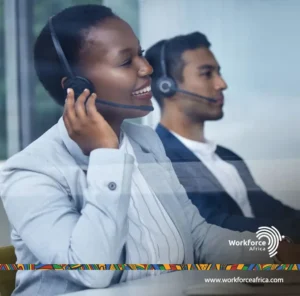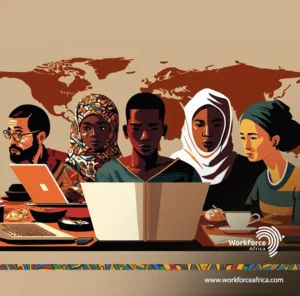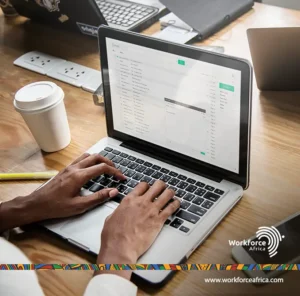In today’s hyperconnected, multilingual world, the need to outsource translation has evolved from a convenience to a necessity. Brands expanding across borders must communicate effectively with local markets, bridging language and cultural gaps to build trust, connect with diverse audiences, and unlock new revenue streams. Yet, many companies overlook a transformative resource in their global strategy; Africa.
The African continent is home to over 2,000 languages, immense linguistic talent, and a rapidly expanding digital workforce. For forward-thinking companies looking to outsource translation, Africa offers a rare blend of affordability, quality, scalability, and cultural insight. Here’s why global brands should start turning their attention to Africa when considering outsourcing translation services and how Workforce Africa can help lead that charge.

The Rising Demand for Multilingual Content
From e-commerce platforms to global NGOs, the demand for translation services has skyrocketed. As markets become more linguistically diverse, companies are tasked with delivering content that resonates locally; social media posts, marketing copy, legal documents, websites, and product packaging all need to be contextually accurate and culturally appropriate.
To meet this demand, more brands now outsource translation to specialised vendors, seeking flexible, high-quality, and cost-effective solutions. However, the traditional outsourcing hotspots in Asia and Eastern Europe are now facing saturation, rising costs, and increased turnaround times. Africa, on the other hand, presents a new, untapped frontier.
Africa’s Multilingual Advantage
Africa is arguably the most linguistically diverse continent in the world. Countries like Nigeria, Kenya, South Africa, and Ethiopia have long histories of multilingualism, with populations speaking multiple languages daily. This natural fluency gives African linguists an intuitive grasp of localization, something no machine or monolingual translator can easily replicate.
Take Nigeria, for example, where over 500 languages are spoken. Or Kenya, where English, Swahili, and a mix of indigenous languages coexist. This linguistic richness makes Africa a powerhouse for translations as a service, especially for brands targeting emerging markets across the Global South.
At Workforce Africa, we tap into this rich talent pool, enabling companies to outsource translation tasks to vetted African professionals who understand both the language and the cultural context of target audiences
Cost-Effective and Scalable Solutions
Cost remains one of the biggest drivers behind the decision to outsource translator services. Compared to counterparts in Europe and North America, African language professionals offer highly competitive rates, often at a fraction of the cost without compromising quality.
What makes the proposition even stronger is Africa’s growing digital infrastructure and young, educated workforce. With millions of graduates entering the job market annually, the continent is poised to become the next global outsourcing hub, not just for IT and customer service, but for outsourcing translation as well.
At Workforce Africa, our model supports scalable teams of translators, project managers, and localisation experts who can be deployed rapidly and flexibly. Whether you need 5 or 50 translators, we provide custom-fit solutions with speed and precision.
Cultural Fluency: A Hidden Competitive Advantage
One of the key elements often missed when companies outsource translation is the importance of cultural fluency. Translation is not simply about substituting words in another language, it’s about conveying meaning, tone, and emotion in a way that aligns with local norms and expectations.
African translators bring an unmatched level of cultural intuition to their work. Having grown up in diverse, multicultural environments, they are uniquely positioned to navigate nuance, humour, idiomatic expressions, and cultural sensitivities.
Brands that partner with Workforce Africa gain more than linguistic accuracy, they gain cultural resonance. Our translators don’t just deliver word-for-word translations; they craft messages that speak to the hearts and minds of your audience.
The Benefits of Outsourcing Translation Services to Africa
So, what are the benefits of outsourcing translation services to Africa specifically?
- Cost efficiency: Africa offers some of the most competitive translation rates globally.
- Talent pool: A vast network of multilingual professionals with deep domain expertise.
- Speed and scalability: Agile teams ready to meet high-volume or urgent projects.
- Cultural accuracy: Deep-rooted understanding of regional nuances and dialects.
- Time-zone alignment: Proximity to both European and Middle Eastern time zones enables seamless collaboration.
When you outsource translation through Workforce Africa, you’re not just delegating a task, you’re gaining a strategic partner.
Suggested Post: Why Global Companies Are Turning to Africa for Talent Sourcing

Translation Use Cases Across Industries
Africa’s value proposition in outsourcing translation isn’t limited to one sector. We’ve seen tremendous impact across industries, including:
- E-commerce: Localising product descriptions and ads for African and Middle Eastern markets.
- Healthcare: Translating patient communications and pharmaceutical labels into indigenous languages.
- Education: Offering multilingual e-learning modules and academic content.
- Legal and finance: Translating contracts, reports, and regulatory documents with precision.
Each of these use cases demands not only linguistic accuracy but also a grasp of technical jargon, legal standards, and cultural nuance; areas where our Workforce Africa linguists thrive.
How to Handle Translation Outsourcing Effectively
Knowing how to handle translation outsourcing is key to ensuring success. Here are a few best practices to consider:
- Define the scope clearly: Be specific about your goals, audience, and tone.
- Centralise project management: Work with a partner like Workforce Africa that can manage everything from translator vetting to quality assurance.
- Prioritise cultural fit: Choose translators who not only speak the language but live the culture.
- Leverage technology where appropriate: Use CAT tools and glossaries to maintain consistency while keeping the human element central.
By applying these strategies, you can maximise the ROI of your translation investment and build lasting connections in new markets.
Why Choose Workforce Africa?
As one of Africa’s leading talent outsourcing platforms, Workforce Africa is uniquely positioned to help brands outsource translation with confidence. We offer:
- Access to thousands of qualified linguists fluent in various African languages.
- End-to-end translation and localisation project management.
- Deep expertise in cross-cultural communication.
- Transparent pricing with flexible engagement models.
We understand Africa, we live Africa, and we connect global brands with the continent’s top talent. Whether you need to outsource translator services for a short campaign or a long-term localisation strategy, we’ve got you covered.
Conclusion
For global brands looking to scale without sacrificing quality or cultural relevance, the decision to outsource translation to Africa is a game-changer. With its vast talent pool, competitive pricing, and unique cultural intelligence, Africa is not just an alternative, it’s the future of outsourcing translation services.
Partner with Workforce Africa and discover how Africa’s next generation of language professionals can elevate your global brand. Contact us today!






